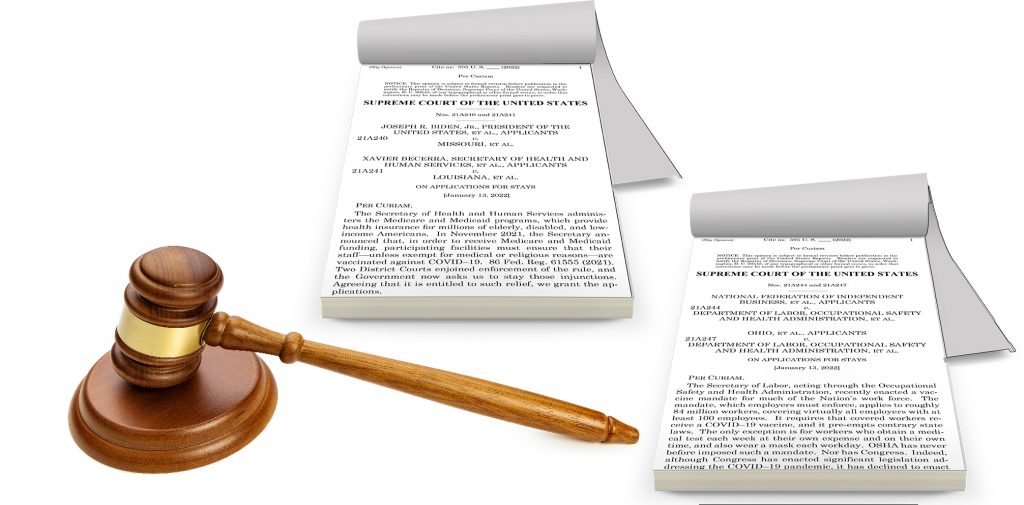The Good: Yes, we should celebrate the Supreme Court’s decision yesterday that OSHA does not have the power to force employers to force 84 million Americans who work for them to get Covid vaccines. But the decision is on narrow grounds, and it didn’t protect 10 million other Americans.
The court’s decision involving the Biden administration’s employer vaccine mandate was based on the fact that Congress had not ceded the authority for such an impactful decision to the government agency.

https://www.supremecourt.gov/opinions/21pdf/21a244_hgci.pdf
The 6-3 majority summarized the arguments:
“We are told by the States and the employers that OSHA’s mandate will force them to incur billions of dollars in unrecoverable compliance costs and will cause hundreds of thousands of employees to leave their jobs,” the justices wrote.
“For its part, the Federal Government says that the mandate will save over 6,500 lives and prevent hundreds of thousands of hospitalizations.
“It is not our role to weigh such tradeoffs. In our system of government, that is the responsibility of those chosen by the people through democratic processes,” i.e., Congress, the Court decided.
If the court were to agree with the government that the Covid threat requires allowing it such impactful temporary emergency powers, then “declarations of emergencies would never end and the liberties our Constitution’s separation of powers seeks to preserve would amount to little,” Justice Neil Gorsuch wrote in a concurrence.
The Bad: But the liberties of 10 million health care professionals are not protected since the court decided, 5-4, that their employers can force them to be vaccinated because the facilities receive money from the federal government, primarily through Medicare and Medicaid.
Here, the court decided that “Congress has authorized the Secretary to impose conditions on the receipt of Medicaid and Medicare funds that ‘the Secretary finds necessary in the interest of the health and safety of individuals who are furnished services.’”
So here’s the danger. If the government is paying for medical services, it can order care providers into obedience and ultimately will be able to dictate what medical services patients can, cannot, or must have.
So read the first decision as a victory for freedom for 84 million workers. But beware. The second decision underscores the danger of ceding authority over our health care system to government to make decisions about our health care.
The Ugly: And this debate is taking place just as the once-great state of California is working hard, yet again, to create its own single-payer government-run health care system.
The Wall Street Journal reports: “Their revived legislation would replace Medicare, Medicaid and private health insurance with a state-run system and eliminate co-pays, deductibles and premiums” for an expansive list of benefits.
“A board of bureaucrats would control costs—i.e., ration care,” the Journal explains.
And get this: “Deliberations about rationing decisions would be concealed from the public. The legislation ‘imposes a limitation on the public’s right of access to the meetings of public bodies’ in order to ‘protect private, confidential, and proprietary information.’
“While Californians would technically be entitled to a ‘free’ knee replacement, they might not get one if bureaucrats consider them too old—but the state won’t let people know that’s the reason.”
We were warned. Who controls your health care truly is a life and death decision.

